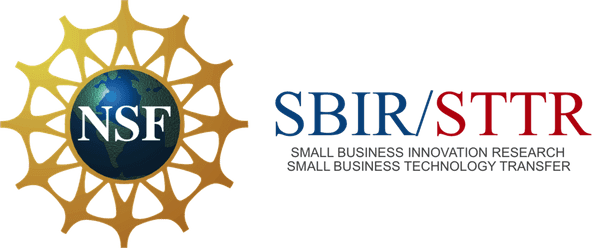SlateSafety has been awarded a National Science Foundation (NSF) Small Business Innovation Research (SBIR) grant for $750,000 to conduct research and development (R&D) work on a “Biometric IoT system for First Responders.”
The broader impact of this Small Business Innovation Research (SBIR) Phase II project is to reduce injuries and costs due to overexertion and heat strain in firefighting through a real-time, biometric monitoring system and accompanying analysis tools. This system collects each firefighter’s vital signs and sends the data to authorized commanders for real-time strategic decision-making. By receiving access to life-critical information, commanders can make informed decisions on the allocation of key resources during the hectic scene of an emergency. Every year over one million firefighters risk their lives to protect others. Almost 60% of the deaths in firefighting are caused by overexertion and stress, which can induce heart attacks as well as other serious medical issues. Around 70,000 firefighting injuries occur each year, and associated costs total over $7 billion annually. The proposed system can be easily adapted to serve military personnel, industrial workers, and others with occupational risk.
“NSF is proud to support the technology of the future by thinking beyond incremental developments and funding the most creative, impactful ideas across all markets and areas of science and engineering,” said Andrea Belz, Division Director of the Division of Industrial Innovation and Partnerships at NSF. “With the support of our research funds, any deep technology startup or small business can guide basic science into meaningful solutions that address tremendous needs.”
“We are honored to have this support from the NSF; we are excited to take what we learned from the NSF Phase I and partner fire departments across our nation and build their ideas directly into our platform,” Zachary Braun, SlateSafety CEO and Principal Investigator, said. “We believe the real-time monitoring of our nation’s first responders physiological status will lead to decreased injuries and deaths and ultimately allow our first responders to better serve their communities.”
Once a small business is awarded a Phase I SBIR/STTR grant (up to $225,000), it becomes eligible to apply for a Phase II grant (up to $750,000). Small businesses with Phase II grants are eligible to receive up to $500,000 in additional matching funds with qualifying third-party investment or sales.
NSF accepts Phase I proposals from small businesses twice annually in June and December. Small businesses with innovative science and technology solutions, and commercial potential are encouraged to apply. All proposals submitted to the NSF SBIR/STTR program, also known as America’s Seed Fund powered by NSF, undergo a rigorous merit-based review process.
You can get in contact with SlateSafety via email, info@SlateSafety.com, or follow SlateSafety on Twitter and Facebook, @SlateSafety
To learn more about America’s Seed Fund powered by NSF, visit: https://seedfund.nsf.gov/
About the National Science Foundation’s Small Business Programs: America’s Seed Fund powered by NSF awards $200 million annually to startups and small businesses, transforming scientific discovery into products and services with commercial and societal impact. Startups working across almost all areas of science and technology can receive up to $1.5 million in non-dilutive funds to support research and development (R&D), helping de-risk technology for commercial success. America’s Seed Fund is congressionally mandated through the Small Business Innovation Research (SBIR) program. The NSF is an independent federal agency with a budget of about $8.1 billion that supports fundamental research and education across all fields of science and engineering.
Thanks for reading our article! For questions or feedback please feel free to email blog@SlateSafety.com.

